First Pages of Best-Selling Novels: Closer to the Heart
I couldn’t resist including one of my favorite fantasy author’s novels. I’ve read most of Mercedes Lackey’s books, as have both my daughters. While they were teenagers, I think we passed her novels around the way we passed the chips and salsa. She is a master at creating believable fantasy worlds, and her world of Valdemar long stays in my mind, decades after reading dozens of her novels those many years ago.
Lackey has a very distinct, simple storytelling style, and does a great job at getting into character. I thought Closer to the Heart would be a nice first-page example from this prolific author.
So let’s jump in, and then we’ll use my first-page checklist to examine what elements she’s nailed on this first page.
Note this is book 2 in one of her (many) series, and as we discussed in last week’s post, it’s important in a series to ensure new readers won’t have trouble getting into the story, as well as avoid too much “catching up” and telling what’s happened before the present action of the new installment.
1.
Technically, this was spring, but it certainly didn’t feel like it. There was a definite bite to the air, and although there was no snow on the ground, the clouds looked as if they were contemplating dropping flakes any moment now. There was no scent of growing things in the air at all, only a vague dampness.
Herald Mags trudged along the street with his arms wrapped around his chest under his tattered cloak—tattered, because he was in disguise, coming to visit his little tribe of spies-in-training, in one of the poorer neighborhoods of Haven. The street was surprisingly smooth, but people did a lot of walking in this part of Haven, and this was also one of the older neighborhoods. There had been a couple hundred years’ worth of patient, ill-shod feet wearing down the cobbles.
It was not, by any means, a bad neighborhood. For the most part, folks here were working poor, with honest jobs; the neighborhood itself might have fallen on hard times over the decades, but it hadn’t turned into an absolute den of filth and thieves.
That was why the house full of orphans and cast-offs fit right in and caused no curiosity. The only real difference between “Aunty” Minda’s houseful of discarded children and every other congregation of cast-offs around here was that Aunty Minda had the financial backing of the Heralds, so that they were guaranteed not to starve, go half-naked, or freeze.
Well, that, and the fact that they were right next to the “Weasel’s” Pawn-shop, and at the first sight or sound of trouble, one to three very large and heavily armed men would come rushing over from the shop to beat the living daylights out of anyone stupid enough to try and cause the little household grief.
Why This Works
So let’s dig into the checklist items for this first page (I added a bit more since the first page starts midway down).
Opening Hook: It comes in the second paragraph (I’d flip them, explanation below). Yes, we meet M
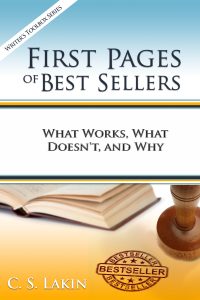 Want to read all the analyses of best-seller first pages on Live Write Thrive?
Want to read all the analyses of best-seller first pages on Live Write Thrive?
Get the compiled collection of posts, along with additional insights and instruction that will help your first pages rock!
First Pages of Best Sellers: What Works, What Doesn’t, and Why is available in Kindle ebook and paperback! Get yours HERE!
ags and he’s carrying something. Raises curiosity. Opening with the weather, to set the stage, is a bit risky (overdone, discouraged, tends to be boring and out of character), but we do get Mags voice right away: “it certainly didn’t feel like [spring].” And for that, I’m a bit forgiving about starting off with the weather.
Introduction of main character in first few lines: Yes, while we don’t get Mags’s name until the second paragraph, he’s present. We don’t get a lot about him, but we see he’s on a mission.
Starting the story in the middle of something that’s happened (or happening): He’s in disguise, to deliver something (we assume) is important. And he calls these kids his spies-in-training, so it makes us wonder why he needs spies.
A nod to setting; avoid excessive exposition or narrative: A few lines of the weather sets the stage, but Lackey quickly gets going into character. He talks about the neighborhood (setting) through the narrative, but the information presented seems relevant and important for setting up his mission.
A catalyst, inciting incident, or complication introduced for your character: While we don’t see any direct catalyst, it’s presumed that something has sent Mags on his way to deliver something needed. And because he’s in disguise and there might be trouble, there is potential for complication.
A hint at character’s immediate intentions: Yes, to deliver something to the orphans.
A hint at character’s hidden need, desire, goal, dream, fear: Other than his immediate purpose, no. But it’s hinted at with his being involved in children and using them in a spy network. There is something bigger going on than just bringing some hungry kids some food to eat.
Unique voice/writing style: Trademark Lackey style. Not so unique but clear, simple storytelling.
Setting the tone for the book: Yes, this is typical for her tone, and she’s setting the stage for the drama to come.
A glimpse at character’s personal history, personality—shed light on motivation: Not directly stated, but we can guess Mags has a heart for these children (in the description we are told he is a Herald, which sounds important (key players in her series, along with Mages) and that he was once a child slave.
Hint of character’s initial plot goal: Something to do with the orphans, what he’s delivering, and the backing and protection of these kids by the Heralds implies he is up to something big and important.
A course of action/decision implied. Introduction of high stakes/dramatic tension: Same as above. Potential for high stakes with this hint at danger and the need for disguise and caution.
Good pacing; jump right into present action. No backstory: There’s a bit of backstory about the neighborhood, but it’s more tied in with his interaction with setting, and so it’s relevant to the present action. We can easily see Mags walking through this neighborhood.
- One characteristic to reveal that makes your character heroic and vulnerable: That he’s willing to disguise himself and deliver something to these children, and perhaps risk more to do something more important, as hinted at by his need for a spy network.
- One element of mystery, something hinted at that raises curiosity: What he’s up to with his spies-in-training that is so important.
- One element out of the ordinary, unusual, that makes the book different/stand out: The initial action is intriguing enough (Mags doing something undercover and working with orphans in this subterfuge).
- Concise, catchy dialogue (if in the first scene) that is not boring or predictable: No dialogue.
- A hint at theme: Not really, though it might be guessed there are some themes ahead dealing with willingness to risk and stand up for something you believe in.
What Could Have Been Better
After reading dozens of Lackey’s novels, at times I felt they were fairly formulaic and at times a bit too predictable, in terms of the writing style. She definitely isn’t Patricia McKillip (my favorite author), whose novels are bright and brilliant examples of wordcraft at its finest. Lackey’s writing style is fairly plain and direct, and that’s not so much a fault or criticism as it is an observation.
But it rears up in phrases that lean toward cliché, such as “fallen on hard times” and “den of . . . thieves” and “beat the daylights out of.”
Lackey also tends toward a lot of passive construction, and while many don’t mind this, it can water down the power of a writer’s words and sentences. We see ten uses of was and four of were. Why not use stronger nouns and verbs?
“This was spring,” and “there was a bite to the air” could be rewritten “The spring air had a bite to it …” We see “there was no snow . . .” and “there was no scent” also in that same first paragraph. In fact every sentence in that opening paragraph is in passive construction.
As I mentioned above, starting a novel with weather, unless utterly fascinating, is not usually riveting. It works all right here because this is classic Lackey style, and the character’s voice comes through. She doesn’t spend a long time on the weather, but I would switch the paragraphs and have the second paragraph be the opening.
I find starting right in showing a character in action and hinting at his motivation a strong intro to a novel (or short story). All in all, I find this opening engaging. It is probably assumed that most readers are faithful fans and know all about her world and the role of Heralds, and have been introduced to Mags. But she does a good job here so that new readers can get right into the story and start getting acquainted with her character.
One last thing I’d like on that first page is a hint at the stakes. Something about what he’s carrying, what makes it important. What might happen if he’s caught or this item gets taken from him. We only guess that this is important, but we really don’t know. And without some hint, there isn’t the tension there might be if we knew how important this chest is that is wrapped in his arms.
What are your thoughts about this first page? Did it engage you? Would you read more?
 Want to read all the analyses of best-seller first pages on Live Write Thrive?
Want to read all the analyses of best-seller first pages on Live Write Thrive?
Get the compiled collection of posts, along with additional insights and instruction that will help your first pages rock!
First Pages of Best Sellers: What Works, What Doesn’t, and Why is available in Kindle ebook and paperback! Get yours HERE!

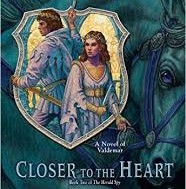
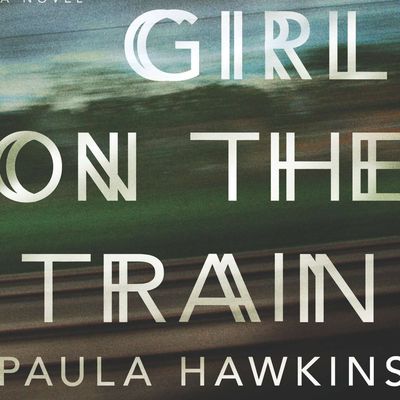
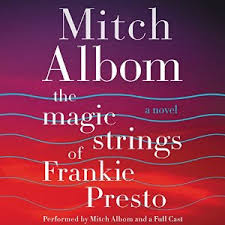



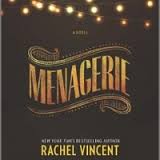




This does seem like the opening to an intriguing tale. I actually prefer the scene starter of weather; seems if you switched the first two paragraphs around you’d toss the weather details into the middle of, and thus break up the continuity of, telling about the street & neighborhood. Kudos to the author; I really like the way she describes the area.
Though it didn’t hit me at first, I agree with you that there’s too much passive voice in that first paragraph.
I have mixed feelings about cliches. Authors also need to beware of going so ‘out of the way’ to avoid them. I’ve seen some paragraphs where the writer’s trying hard to substitute something novel for a very obvious familiar — but the new version just doesn’t ‘ring’ right and they end up calling attention to their maneuvers.
Not sure what causes you to say he’s carrying something. I’ve read the except over several times and can’t see any reference to him carrying or taking anything. He’s walking along with his arms wrapped about himself.
The idea that he’s a Herald and the orphanage has the backing of the Heralds tells me that he’s sympathetic to and involved in this cause.
I’ve read several Mercedes Lackey’s books but not this one. It does hint at an interesting tale, that something is about to happen. I would read it from the first page.
Like the first one to comment, I read the page twice to see where it mentions he was carrying something, and he only has “his arms wrapped around his chest under his tattered cloak.” I didn’t automatically assume he was clutching something. I thought he was cold. If you’ve read the story, then you know if he has something or not. But from that first page, there’s no indication he is carrying anything.
I love setting the scene with weather, whether I’m reading someone else’s story or writing my own. Why do so many people complain about that? In the Maritimes, the first thing we talk about is the weather. If we have nothing to say to a stranger, we can always talk about the weather. Like right now. It’s supposed to be spring, and at this very moment, there’s flurries outside my window. At the funeral tomorrow, we’ll be talking about the weather.
As a reader, I want to know the weather. Whether sets a mood; it’s vital to every story unless you’re inside with no windows.
As I was reading the items necessary on the first page, I was mentally checking to see if my story contains these elements in the first page or two. I’m happy to say, my story gets a passing mark. Thanks for sharing this exercise with us.
@ Diane Tibert: The weather is boring. Of all these weather conversations you say people have, isn’t it only because something more exciting is not going on? When something unusual, threatening, thrilling is happening, people open conversations with that. They don’t talk about the weather first, THEN talk about the fact that downtown is burning, a hurricane is destroying the city, or enemy tanks have just rolled into your village and are firing on everyone.
When your story opens with the weather, it is because nothing else more exiting, urgent, or dangerous is happening to the protagonist in your story. And probably why no one wants to hear
or read it. It bores them.
I love great weather in fiction. Weather can be so impacting to the character and can also reflect the character’s mood. Too many writers ignore the power of weather description and presence in scenes.